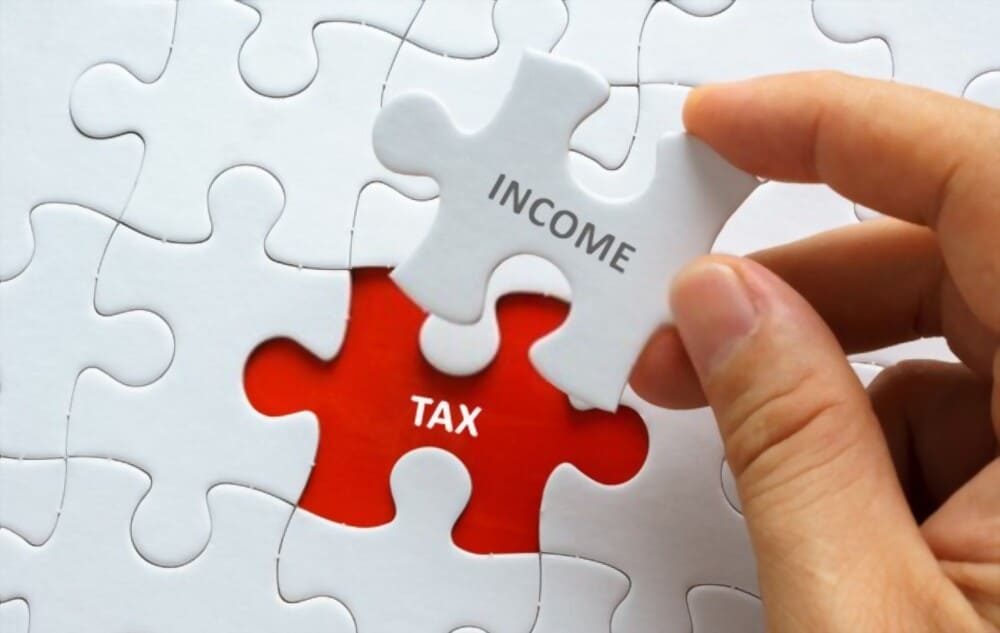Part XIII income tax is a withholding tax levied on certain payments or credits made to non-residents. This tax does not apply to all earnings. In general, passive earnings are a source of concern for Part XIII tax. In other words, Part XIII tax is a tax withheld by the payer from the payment of a non-resident. The following are the most common types of Canadian income subject to Part XIII taxation:
Pensions, annuities, interest, dividends, management fees, estate or trust income, rent, royalties, and payments for film or video acting services.
Is Part XII Tax Refundable?
No, the Part XIII taxes you pay on income derived from Canada are typically not refundable. This indicates you won’t need to prepare a Canadian tax return to record your payment unless you also receive:
- Canadian rental income from actual properties or timber royalties.
- Some sorts of Canadian pension profits
If you do have profits from those Canadian sources and choose to file a return with your Part XIII tax deducted, you might be able to declare a refund for some or all of it. However, you won't be able to use H&R Block's tax software to prepare your return.
What are the things that made you responsible for Part XIII income tax?
You are responsible for withholding Part XIII tax if you are:
- If you're paying or crediting, Part XIII amounts to a non-resident, and you're a Canadian resident.
- for a debtor, an agent, or an individual who pays or credits Part XIII quantities while redeeming bearer coupons or warrants.
- Moreover, an agent or any other person who gets Part XIII quantities for a non-resident loses the right to withhold tax.
- Amounts that are taxable under Part I or Part XIII of the Income Tax Act are paid or credited by any other individual.
What are the rates of part XIII tax?
Non-residents generally pay a 25% tax on amounts taxable under Part XIII. The tax charge, however, can be reduced or eliminated under the terms of the Income Tax Act or a bilateral tax treaty between Canada and other countries.
This promise has to be made by a Canadian payer or withholding agent. They must make sure to withhold and pay the right amount of Part XIII tax at the right rate.
The Canada Revenue Agency (CRA) offers an online non-resident tax calculator to help you determine your Part XIII tax liability. Any non-resident tax deductions withheld by the Canadian payer must be reported to the CRA by the 15th of the month following the month in which the amount was paid or credited to the non-resident.
You must verify the rate given in the Income Tax Act first if you pay or credit or are assumed to have paid or credited a taxable amount to somebody in a country that has tax treaties with Canada. In the following 12 months, an NR4 assertion of quantities paid or credited to non-citizens of Canada will need to be filed with CRA.
How Beneficial Ownership and Tax Treaties Are Valuable
To comply with the reasonable fee withholding requirement, you must have sufficient recent statistics to demonstrate that the payee:
- is the advantageous owner of the income.
- is basically resident in a country with which Canada has a tax treaty.
- is eligible for treaty benefits based on the paid income under the tax treaty
Beneficial Ownership: An acquaintance
Most of the time, you can assume that the payee is the rightful owner of the money until you find out that there is a good reason to think that the payee isn't always the rightful owner.
It's far more affordable to impeach whether or not the payee is the valuable owner. Despite the fact that this list does not have all the possibilities, these scenarios are the following:
- The payee acts, even on occasion, as an agent or nominee.
- The payee is declared to be "in trust of" another person or "in care of."
- The mailing address for paying the income isn't the same as the owner's registered address.
- As a result, the person who gets the money is either a partnership, a US Limited Liability Corporation, some other waft-through entity, or a co-ownership group.
The CRA will think that the payee is the person who owns the money if the payee is an insurance company or a pension fund.
Eligibility for treaty benefits and residence
NR301, NR302, and NR303 of these forms can be given to you by the payer, partnerships, or other waft-via entities with non-resident partners or individuals, or the information requested in these forms to certify that they're:
- The beneficial owner of the earnings is
- resident in a particular tax treaty country, and
- eligible for tax treaty benefits on the profits they receive.
Conclusion
Non-residents who make certain payments or get credits from the government have to pay the Part XIII income tax. This is a tax that is taken out of these payments or credits. In general, passive income is a problem for the Part XIII tax because it can be hard to track down.
A lot of times, the taxes you pay on income that comes from Canada aren't refundable. This means that you won't have to file a Canadian tax return to show that you paid.
The Canada Revenue Agency (CRA) has an online non-resident tax calculator that can help you figure out how much Part XIII tax you have to pay. In order to report all tax deductions paid or credited to non-residents by the 15th of the month after they were paid or credited to them, the Canadian payer must do so by that date each year.

